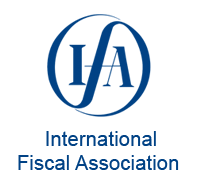On December 29th, Ordinance n.º 455-E/2023 was published and entered into force the following day, aiming to regulate the Extraordinary Contribution for Local Accommodation (CEAL). This contribution was introduced alongside the entry into force of the “Mais Habitação Programme” on October 7th, 2023.
Valadas Coriel & Associados offers a concise overview of the applicability and proper regulation of this extraordinary contribution, which is imposed to flats and lodging establishments integrated in an autonomous fraction of a building for local accommodation.
- The owners of local accommodation establishments are liable for the Extraordinary Contribution for Local Accommodation (CEAL), although the property owners (other than the owners of the Local Accomodation License) in which local accommodation activities are carried out are subsidiarily liable for the payment of this contribution.
- The contribution is levied on the use of residential property for local accommodation on December 31st of each calendar year and if they have a valid local accommodation license. It’s important to note that, for the purposes of this regime, the term “residential property” only encompasses autonomous fractions and sections of urban buildings capable of independent residential use.
- Properties located in inland areas[1] are excluded from the objective scope of CEAL, as are properties located in parishes that fulfil the following criteria:
- Are covered by a municipal charter in force that shows the appropriate balance of housing and student accommodation in the municipality;
- Are part of municipalities in which the housing shortage situation has not been declared; and
- Do not have any part of their territory as an urban pressure zone.
By January 31st of the year following the tax event, municipalities notify the Portuguese Tax Authority by electronic data transmission of the parishes that meet the criteria set out therein.
- Residential properties that do not constitute autonomous fractions, parts, or divisions capable of independent use are exempt from CEAL. This exemption also applies to local accommodation units in owner-occupied and permanent housing, provided the operation does not exceed 120 days per year.
- The CEAL tax base is determined by applying the Local Accommodation Economic Coefficient and the Urban Pressure Coefficient to the gross private area of the residential property on which CEAL is imposed.
- The Table for determining urban pressure for each parish, municipality, district and national or regional level applicable to 2023 can be consulted here.
- CEAL is paid by the taxable person through a declaration sent annually to the Tax and Customs Authority by electronic data transmission by the 20th of June of the year following the taxable event, and the assessed contribution must be paid by the 25th of June.
Real Estate Department
Marta Valadas Coriel | Rita Tigeleiro Afonso | António Vieira | Cláudia Silva de Lima | Sofia Batista Linguiça
[1] As identified in the annex to Ministerial Order no. 208/2017 of 13 July












